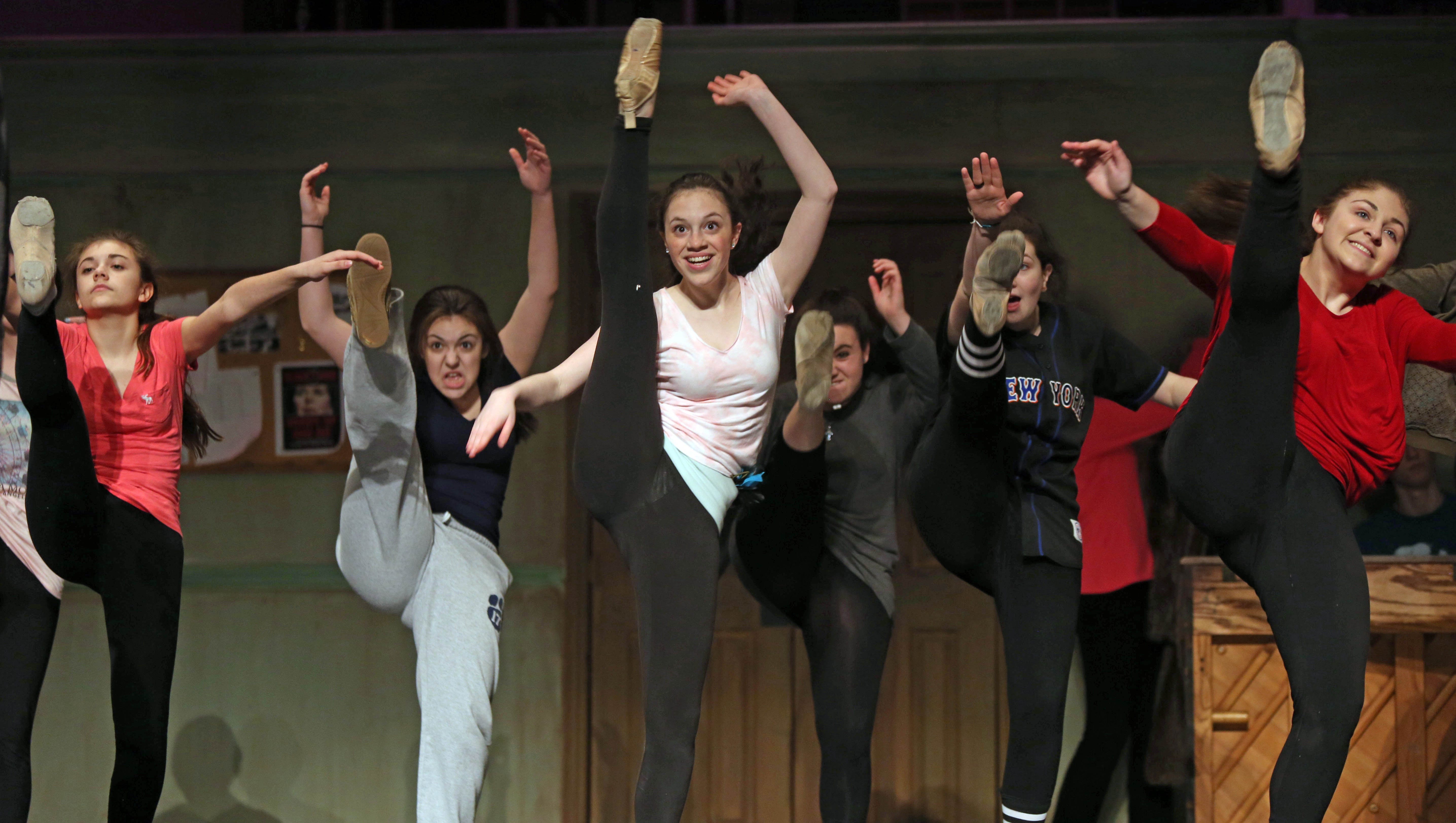
In the final scenes, fourteen years later, Billy takes the stage at Covent Garden to perform the Swan in Matthew Bourne’s Swan Lake, as Jackie, Tony and Michael watch from the audience.

Seemingly rejected, Billy returns home with his father but some time later, the Royal Ballet School sends him a letter telling him he has been accepted, and he leaves home to attend. He is sternly rebuked by the examiners, but when asked what it feels like when he is dancing, he describes it as being ‘like a fire in my body… I fly like a bird… it’s like electricity’. At the audition, Billy is very nervous, and punches another boy in frustration, fearing that he has not performed well enough. He attempts to cross the picket line and return to work in order to pay for the trip to London, but eventually his fellow miners and the local community raise the money, while Jackie pawns Billy’s mother’s jewellery.

Wilkinson tries to persuade Jackie to let her pay for the audition, but he refuses. Later, Jackie catches Billy dancing in the gym and realises that his son is truly talented he resolves to do whatever it takes to help Billy attain his dream. Meanwhile, Billy has a friend, Michael, who is gradually revealed to be gay, although Billy’s own sexuality remains somewhat ambiguous.
BILLY ELLIOT ENDING PROFESSIONAL
When she tells Jackie and Tony about this, they are outraged at the prospect of Billy becoming a professional ballet dancer – not least because they think he will be considered to be gay. Wilkinson believes Billy is talented enough to study at the Royal Ballet School in London, but due to Tony’s arrest during a fight between police and striking miners, Billy misses the audition. However, Billy secretly continues lessons with his dance teacher, Mrs. He tries to keep this secret from his father, concerned that he will be seen as a ‘poof’ but when Jackie finds out, he forbids Billy from attending. By chance, he finds and eventually joins a ballet class that is using the gym. Billy’s father sends him to the gym to learn boxing, but Billy dislikes the sport. Billy lives in a small mining village near Durham with his widowed father, Jackie, and older brother, Tony, who are both coal miners out on strike and also his maternal grandmother, who has dementia, and once aspired to be a professional dancer.

Released in 2000, Billy Elliot is set against the backdrop of the miners’ strike in the north of England in the mid-1980s. As I intend to show, the politics of these two films are also quite different – even if both of them ultimately focus on an individualistic form of escape.

Where Kes initially struggled to achieve widespread distribution, Billy Elliot gained Oscar nominations and BAFTA awards, and has made over $100 million at the box office. They are also very different kinds of films: Kes is a naturalistic drama, produced by a small UK independent company, while Billy Elliot is a high-budget entertainment, produced by Universal Studios and clearly targeted at a large global audience. Nevertheless, the outcomes of their two stories are very different: unlike Billy Casper, Billy Elliot is supported by a charismatic teacher, and eventually by his family and local community and where Kes ends in tragedy, Billy Elliot ends in triumph. Some scenes seem like direct echoes, especially the sequences where the boys steal a book in order to learn more about their new-found interest and there is a key moment in both films where each of them is able to articulate in a more public setting how it feels to engage in their passion. Instead, both find a passion that they struggle to develop in secret. Both Billies reject the traditionally masculine activities (football, boxing) they are encouraged to pursue, as well as the potential future that is laid out for them in working down the coal mine. Like his namesake, Billy Elliot has a missing parent (in this case, his mother), and is routinely belittled by an older brother. Like Loach’s film, it is about a young boy who seeks to escape from the constraints of his poor, working-class upbringing – in this case, in order to develop a talent for dance. The next film I want to consider breaks slightly with the chronological sequence, yet Stephen Daldry’s Billy Elliot contains so many echoes of Kes that it really needs to be read alongside it.


 0 kommentar(er)
0 kommentar(er)
